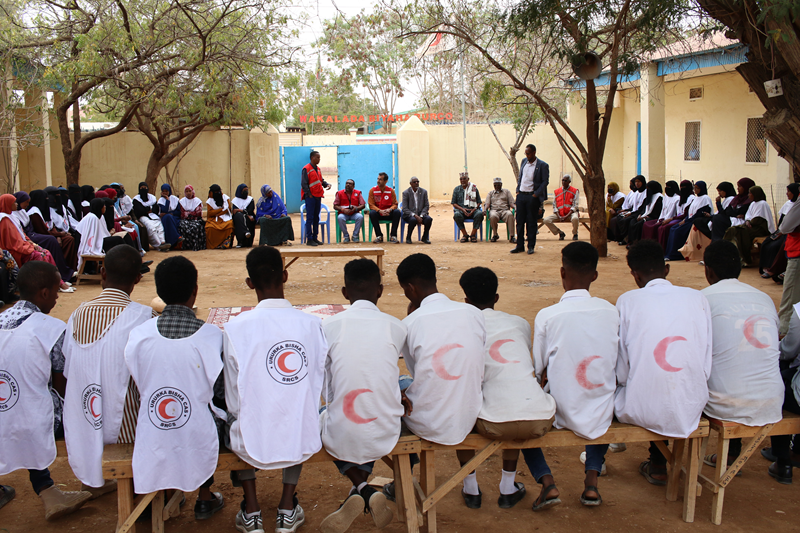Teachers influencing health outcomes in Somalia
Teachers are pillars of their communities worldwide, but in Somalia, a group of teachers are having an important impact beyond education. In 2024, Somali Red Crescent volunteers – including teachers – helped identify three separate measles outbreaks, demonstrating how educators can be on the first line of health monitoring and response.
Often, epidemics start and end in communities. Yet, in places with limited health services or weak public health surveillance, crucial information about outbreaks can be slow to reach authorities. Through Community-Based Surveillance (CBS) approaches, local people are empowered to address this gap by systematically detecting and reporting health threats. This enables rapid responses and can save lives.
Despite global progress, diseases like measles are resurging. While measles cases dropped by nearly 80% between 2000 and 2020, infections rose by 20% just three years later. In 2023 alone, 10.3 million people were infected worldwide. Sadly, 107,000 people died, most of them children.[1]

To combat this trend, the Somali Red Crescent has trained teachers and volunteers to recognise common illnesses. Measles, for example, is highly contagious. One infected person can spread the virus to 12–15 others, and the virus can linger in the air for up to two hours. Schools are high-risk environments, but now, teachers can spot symptoms early and take action to protect their students and communities. “These days I teach by doing: identifying health risks, reporting them, and taking action to keep my kids safe. Health isn’t just the responsibility of doctors; we all share it,” shares Abdirahman Yusuf Nuur, a CBS volunteer.
Equipped with digital devices, volunteers use the “NYSS software platform”. Nyss is a custom software platform for the collection, management and analysis of CBS data developed by the Norwegian Red Cross, the Belgian Red Cross and the International Federation of Red Cross and Red Crescent Societies (IFRC) to record and report symptoms in real time. This data helps local authorities track and respond to outbreaks quickly, overcoming one of the biggest barriers to effective health surveillance.
With support from the EU, teachers and volunteers have not only become influencers and public health advocates, but they also administered vaccines to over 11,520 children as part of a 12-day vaccination drive.

A downturn in vaccination rates in the last years has contributed to the resurgence of measles leaving millions of children at risk. However, in Puntland and Sool, where this project is located, measles vaccination was up 28% in 2024, and typhoid and polio immunisation up by 10%. By dispelling myths and encouraging vaccination, these community leaders are helping to protect the next generation.
Knowledge is power. With the support of the Somali Red Crescent, teachers and volunteers are strengthening local health systems and saving lives—one child, one family, and one community at a time.
Basic information
Activity name
Epidemic preparedness and response (ECHO PPP-Somalia)
Country
Somalia
Duration
01 May 2022 – 30 June 2025
Partners
Norwegian Red Cross, Somali Red Crescent and IFRC

